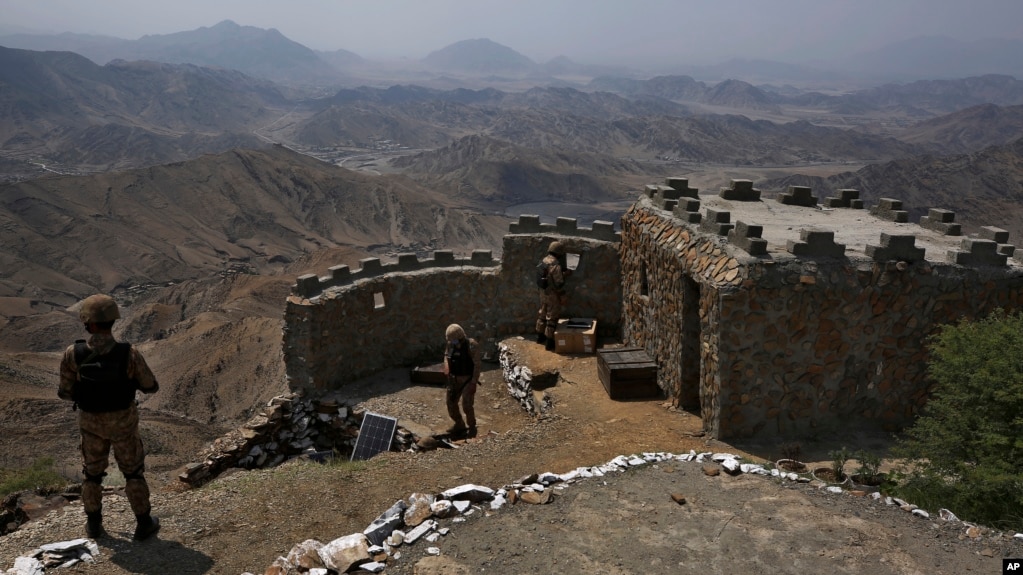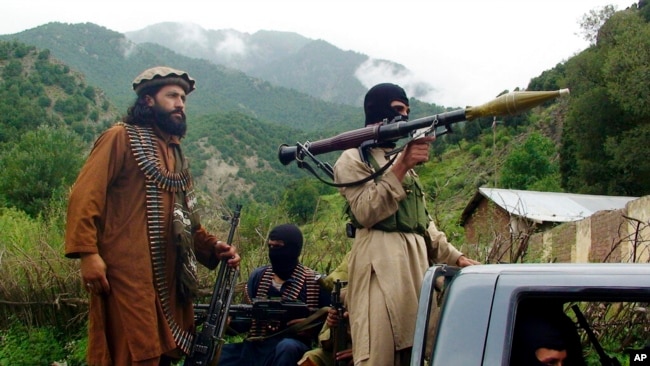- Ayaz Gul
- Voice of America

“Unfortunately, the peace dividends for us are missing,” Asif Durrani, Pakistan’s special representative on Afghanistan, told an international seminar in Islamabad.
He said his government was engaged in a sustained dialogue with the Taliban to seek an end to the cross-border terrorism orchestrated by fugitive leaders and militants of the Tehrik-i-Taliban Pakistan, or TTP, a globally designated terrorist organization.
“The TTP attacks on Pakistan along the borders have increased. They are taking shelter on the Afghan soil,” the envoy stated.
“I cannot blame the government in Afghanistan at the moment,” Durrani stressed. “But we as Pakistan expect that the kind of peace they have brought in their land should also contribute to peace in our borderlands, and those TTP people who are taking shelter in Afghanistan either should be returned to Pakistan or be neutralized.”
The seminar was organized by the state-run Institute of Strategic Studies Islamabad in collaboration with the United States Institute of Peace.
Surge in militant attacks
Since the Taliban seized control of the neighboring country in August 2021, Pakistan has seen a dramatic surge in militant attacks that have killed hundreds of civilians and security forces. Officials say TTP leaders and other members have moved their operation bases to Afghanistan since the Taliban takeover and enjoy greater freedom of movement there.
The rising TTP-led attacks in Pakistan are the primary source of tensions between Islamabad and de facto Taliban rulers in Kabul, amid allegations Afghan nationals have also taken part in some of the recent suicide bombings and other terrorist raids.
Last month, members of a Durrani-led delegation to Kabul were reportedly told by their Taliban interlocutors that the Afghans had captured 200 TTP members for their involvement in cross-border attacks and had taken other steps to “neutralize” the militant activity. But Pakistani officials said the measures did not lead to a reduction in attacks.
TTP calls itself an extension of the Afghan Taliban to Pakistan, and its leaders pledge allegiance to Hibatullah Akhudzada, the supreme leader of the Taliban government in Kabul.
This week, the militant violence prompted the Pakistani government to order all illegal immigrants, including more than 1.7 million Afghans, to leave the country by November 1 or face deportation. The Taliban decried the move and urged Islamabad to review the decision.
“Pakistan’s decision to expel Afghans is unjustifiable and inhumane, and we condemn it,” Taliban Defense Minister Muhammad Yaqoob told a graduation ceremony at the police academy in the Afghan capital.
However, Durrani said that Pakistan and Afghanistan “enjoy a symbiotic relationship” and attempted to downplay tensions as mere “rivalries between cousins” under local traditions. “But that does not mean that we have become enemies. Not at all.”
Foreign ministers meet
Meanwhile, Pakistani Foreign Minister Jalil Abbas Jilani and his Taliban counterpart, Amir Khan Muttaqi, met on the sidelines of a China-hosted international conference Thursday.
Jilani’s office in Islamabad said he “underscored that challenges confronting regional peace and stability be addressed in collaborative spirit through collective strategies.”
Muttaqi’s spokesman said the two sides had discussed bilateral trade and problems facing Afghan businessmen and refugees in Pakistan. The Taliban foreign minister cautioned Jilani that “negative media statements, hurdles facing transit trade and harassing Afghan refugees” could adversely affect mutual ties.
Pakistan provides landlocked Afghanistan access to international markets through its land and seaports.
This week, Islamabad banned more than 200 items “prone to smuggling” under its Afghan transit trade agreement with Kabul and imposed a 10% process fee on commercial goods imported into Afghanistan through Pakistan.
The restrictions have upset the Taliban, and they have urged Pakistani officials to reverse them, warning they would harm bilateral trade and transit cooperation.
Pakistan also conducts its trade with landlocked Central Asian countries through Afghanistan, and there has been a significant increase in the transit trade since the Taliban takeover two years ago.
 Afghanistan Peace Campaign
Afghanistan Peace Campaign